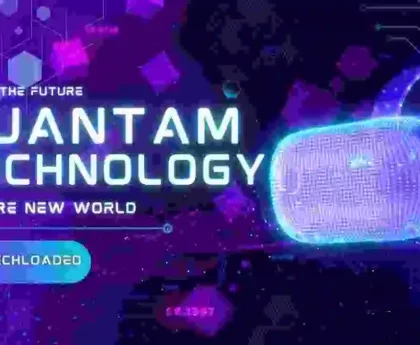In today’s digital age, trust and transparency have become crucial for various industries and sectors. With the advent of blockchain technology, there is an opportunity to revolutionize the way we establish trust and ensure transparency in our interactions. This blog explores the numerous ways in which blockchain technology can be utilized to improve transparency and build trust across diverse domains.
Understanding Blockchain Technology
To comprehend the potential of blockchain technology in enhancing transparency and trust, it is essential to first grasp its fundamental concepts. Blockchain is a decentralized and distributed digital ledger that records transactions across multiple computers. It provides immutability, transparency, and security through cryptographic algorithms. A key characteristic of blockchain is its ability to create an auditable and tamper-proof record of transactions, making it ideal for ensuring transparency and trust in various applications.
Improving Transparency in Supply Chain Management
One prominent area where blockchain can be applied to enhance transparency is supply chain management. By leveraging blockchain, organizations can track and trace the movement of goods from their origin to the end consumer. Each transaction or event related to the product can be recorded on the blockchain, providing an immutable and transparent audit trail. This enables consumers and stakeholders to verify the authenticity, origin, and conditions of the products they purchase, thus reducing fraud and ensuring ethical sourcing.
Transforming Financial Transactions
Blockchain-based cryptocurrencies, such as Bitcoin and Ethereum, have gained significant attention in recent years. These decentralized digital currencies allow for peer-to-peer financial transactions without the need for intermediaries like banks. By leveraging blockchain’s transparency and security features, financial transactions can be conducted with greater trust and reduced risk of fraud or manipulation. The decentralized nature of blockchain also eliminates single points of failure, increasing the security of financial transactions.
Reinventing Voting Systems
Traditional voting systems often face challenges related to transparency and trust. Blockchain technology can provide a secure and transparent platform for conducting elections. By recording each vote on the blockchain, the voting process becomes tamper-proof and auditable. This ensures the integrity of the voting process, making it difficult for any unauthorized manipulation. The transparency and immutability of the blockchain allow for independent verification of the election results, fostering trust in the democratic process.
Strengthening Intellectual Property Protection
Protecting intellectual property rights is a critical concern in today’s digital world. Blockchain can offer a decentralized and transparent platform for registering and verifying intellectual property. By recording details of creations and inventions on the blockchain, it becomes easier to establish proof of ownership, preventing plagiarism and unauthorized use. This enhances transparency in intellectual property transactions and builds trust among creators, innovators, and businesses.
Revolutionizing Real Estate and Land Registry
The real estate industry often faces challenges related to fraud and complex transaction processes. Blockchain technology can streamline property transactions, reduce fraud, and increase transparency. By recording property ownership and transaction history on a blockchain, it becomes easier to verify ownership, prevent double-spending, and reduce disputes. Blockchain-based land registries can transform the real estate sector by ensuring transparent and trusted property transactions.
Promoting Transparency in Charity and Donations
Charitable organizations rely on public trust and transparency to secure donations. Blockchain can enhance transparency and accountability by recording donations and their allocation on a public ledger. Donors can track their contributions, ensuring that funds are used for their intended purpose. This fosters trust in the organization and provides assurance that the donated resources are making a genuine impact.
Empowering Identity Management
Blockchain can revolutionize identity management by giving individuals more control over their digital identities. Storing identity information on a blockchain allows for selective sharing of information while maintaining privacy and security. This reduces reliance on centralized identity providers and enhances trust in the authentication process.
Blockchain technology holds tremendous potential for improving transparency and trust across various sectors. By leveraging its decentralized, transparent, and immutable nature, blockchain can transform supply chain management, financial transactions, voting systems, intellectual property protection, real estate, charity, and identity management. Embracing blockchain technology allows us to establish trustworthy and transparent systems, empowering individuals, organizations, and society as a whole. As blockchain continues to evolve and find new applications, its impact on transparency and trust will only grow, ushering in a new era of integrity and accountability.




